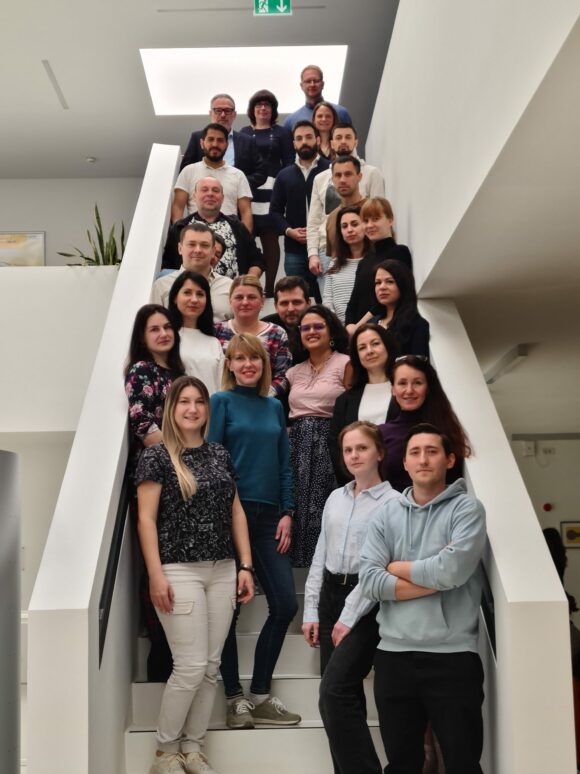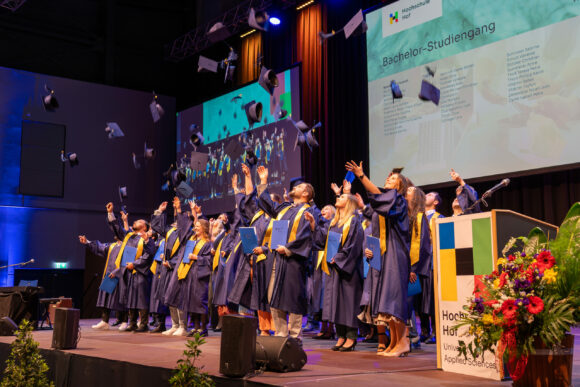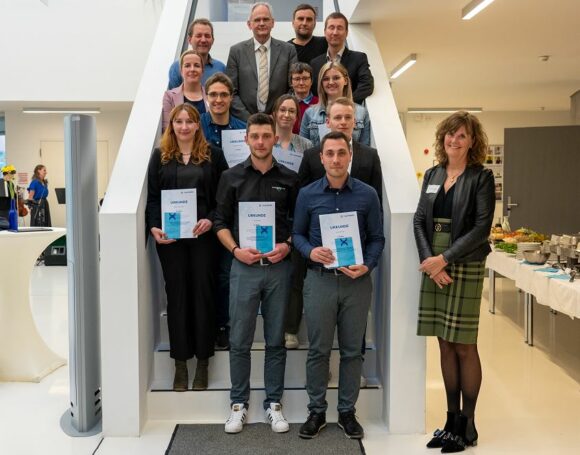“Aquaponics for Beginners – Fish and Vegetables at School” is a current environmental education project that enables schools in the Hofer Land region to inform their students about sustainable and resource-conserving food production and at the same time encourage them to think responsibly. Among the schools involved in the cooperative project between Hof University of Applied Sciences and the Water & Energy Competence Network are the Münchberg-Poppenreuth Middle School and the Schwarzenbach am Wald Middle School.
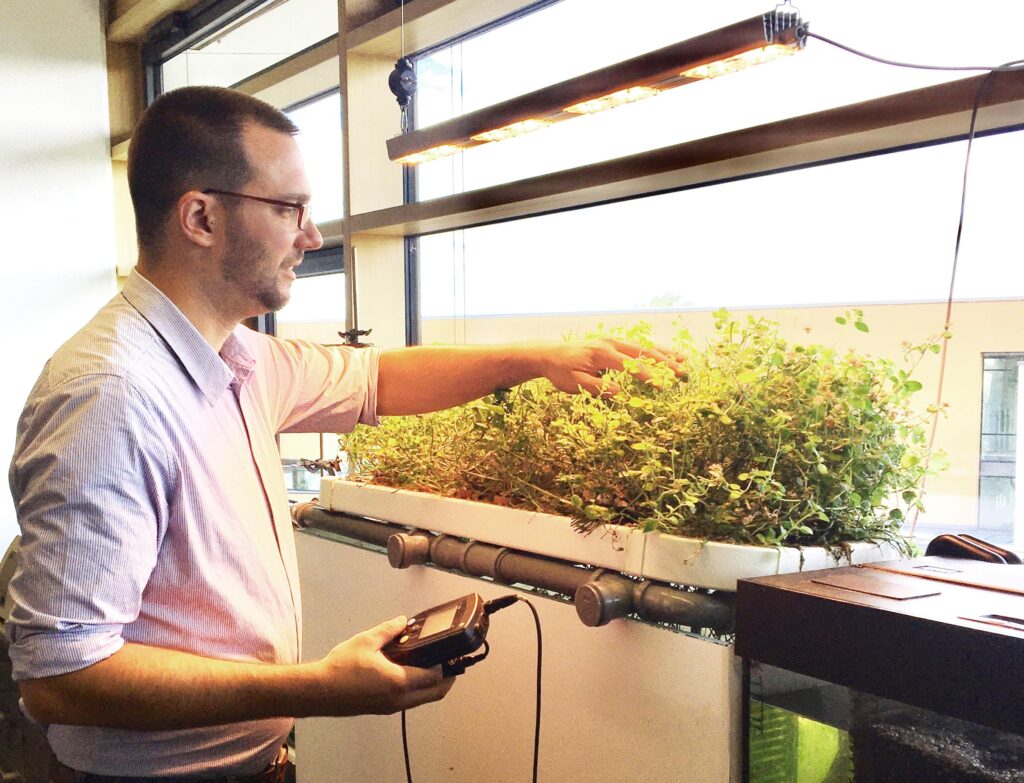
Aquaponics is the combination of fish farming (aquaculture) and growing crops without soil (hydroponics). “Aquaponics is particularly sustainable because of the resource-saving cultivation of food – that is, it significantly saves water, energy and fertilizers compared to the conventional approach. You can use it to produce foods like fish, herbs and a wide variety of vegetables,” says Dr. Harvey Harbach of Hof University of Applied Sciences.
Promoting considered purchasing decisions
As the contact person at the Institute for Water and Energy Management (iwe) for the research area of aquaculture, which includes aquaponics, Dr. Harbach has years of experience in the field of integrated aquaculture. He is already looking forward to the task
Each and every one of us can make a small contribution to more environmentally friendly and sustainable food production with our purchasing decisions. Bringing this to young people is a matter close to my heart.”
Dr. Harvey Harbach
Aquaponics plant is supervised
Students from three sixth grades are taking part in the school project that is now starting. They will be responsible for looking after a model aquaponics system for four weeks, supported by teachers Chantal Braun (Münchberg-Poppenreuth) and Andreas Fraas (Schwarzenbach/Wald). Fittingly, there is a lecture that prepares the participants for their task and introduces them to the topic of aquaponics. But the project goes one step further: “In addition to imparting theoretical knowledge, the aim is to show the students how easy it is to prepare healthy meals. Corresponding school lessons have already taken place and will continue as part of the project,” says Dr. Harvey Harbach.
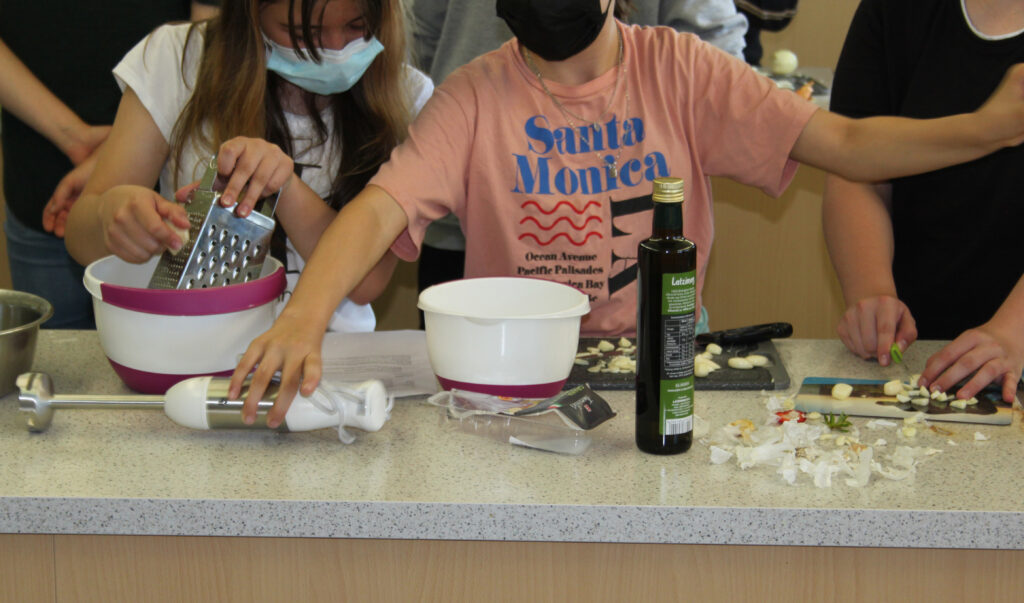
Responsible use of resources
Finally, at the end of the year, a virtual final event for all three classes will round out the project. “Aquaponics for Beginners – Fish and Vegetables at School” will enable students to gain theoretical and practical knowledge about aquaculture methods and about their advantages and disadvantages. Furthermore, they, the future consumers of fish and fish products, are given the opportunity to additionally influence production methods through their purchasing decisions
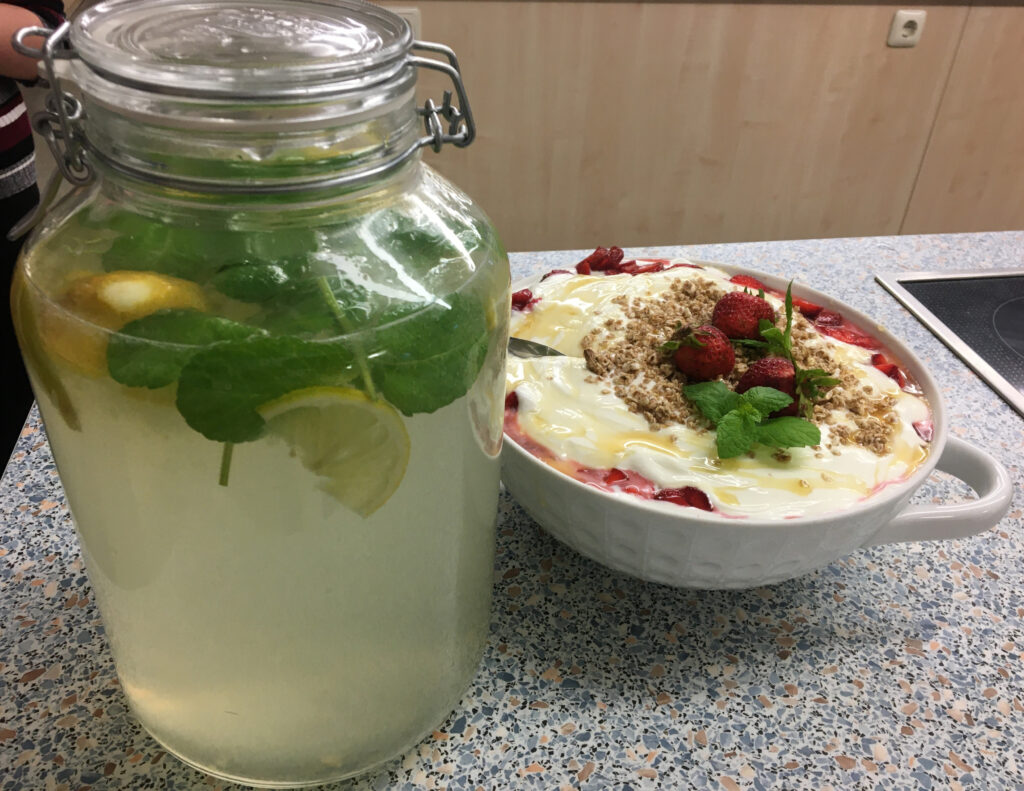
They are empowered to positively influence their share of overall production by demanding fish from sustainable aquaculture practices. In addition, the responsible use of water as a resource is taught.
Funding from the Bavarian Ministry of the Environment
Within the framework of the funding program “Intensification of Environmental Education in Bavaria” of the Bavarian State Ministry for the Environment and Consumer Protection, the Kompetenznetzwerk Wasser und Energie e.V. together with the Institute for Water and Energy Management (iwe) of Hof University of Applied Sciences is hereby already carrying out the second educational project on the topic of aquaponics.




